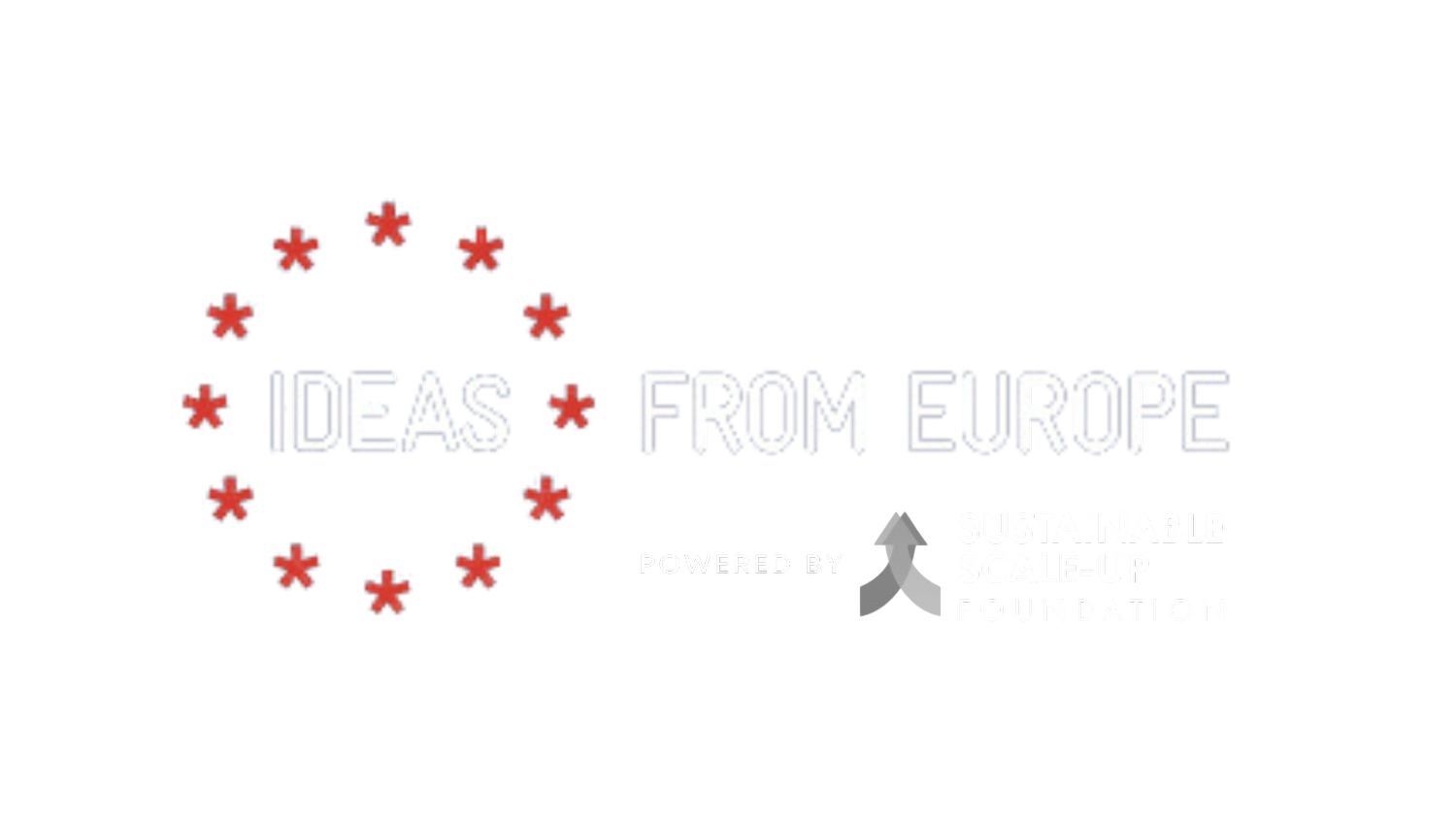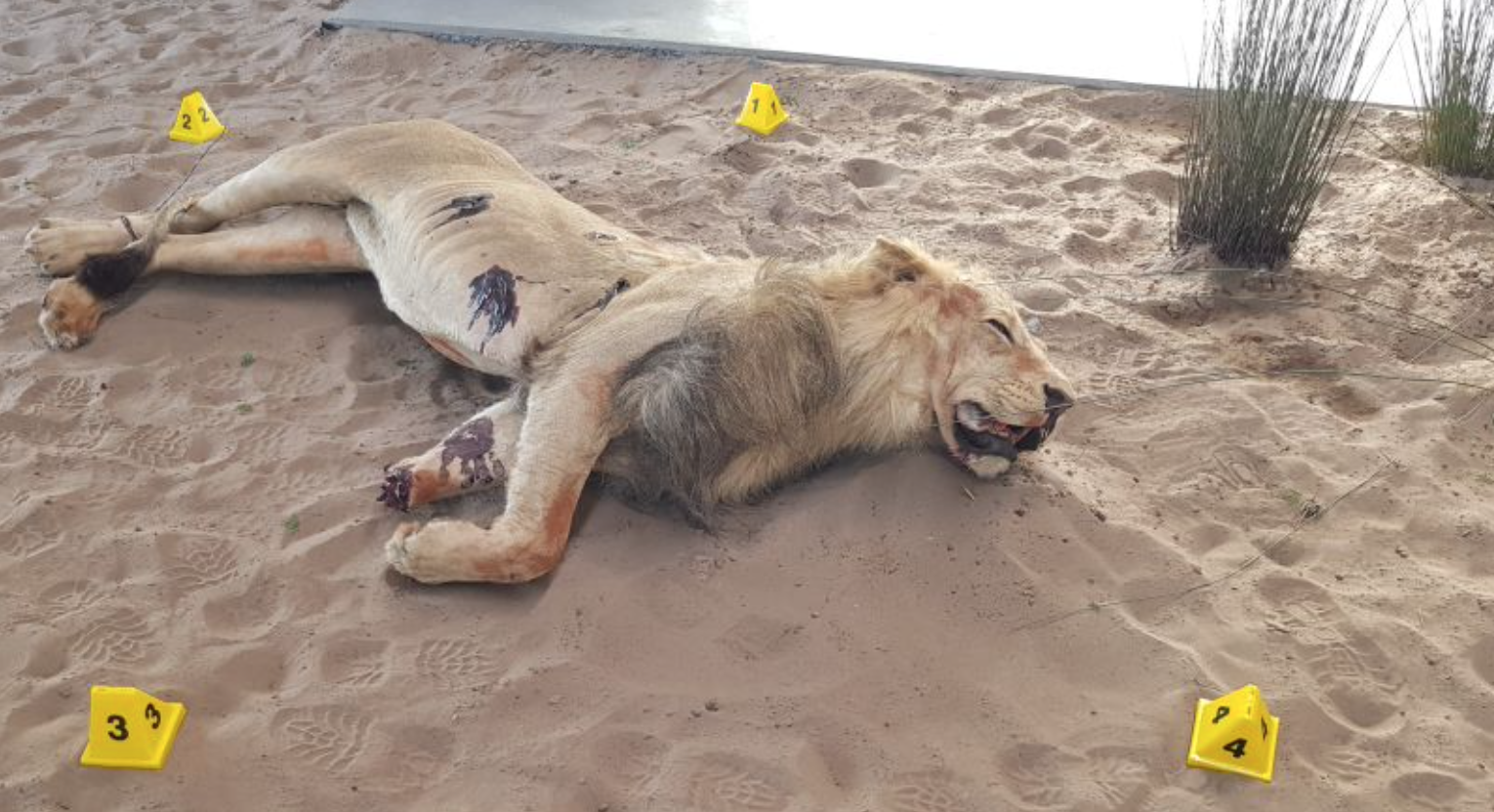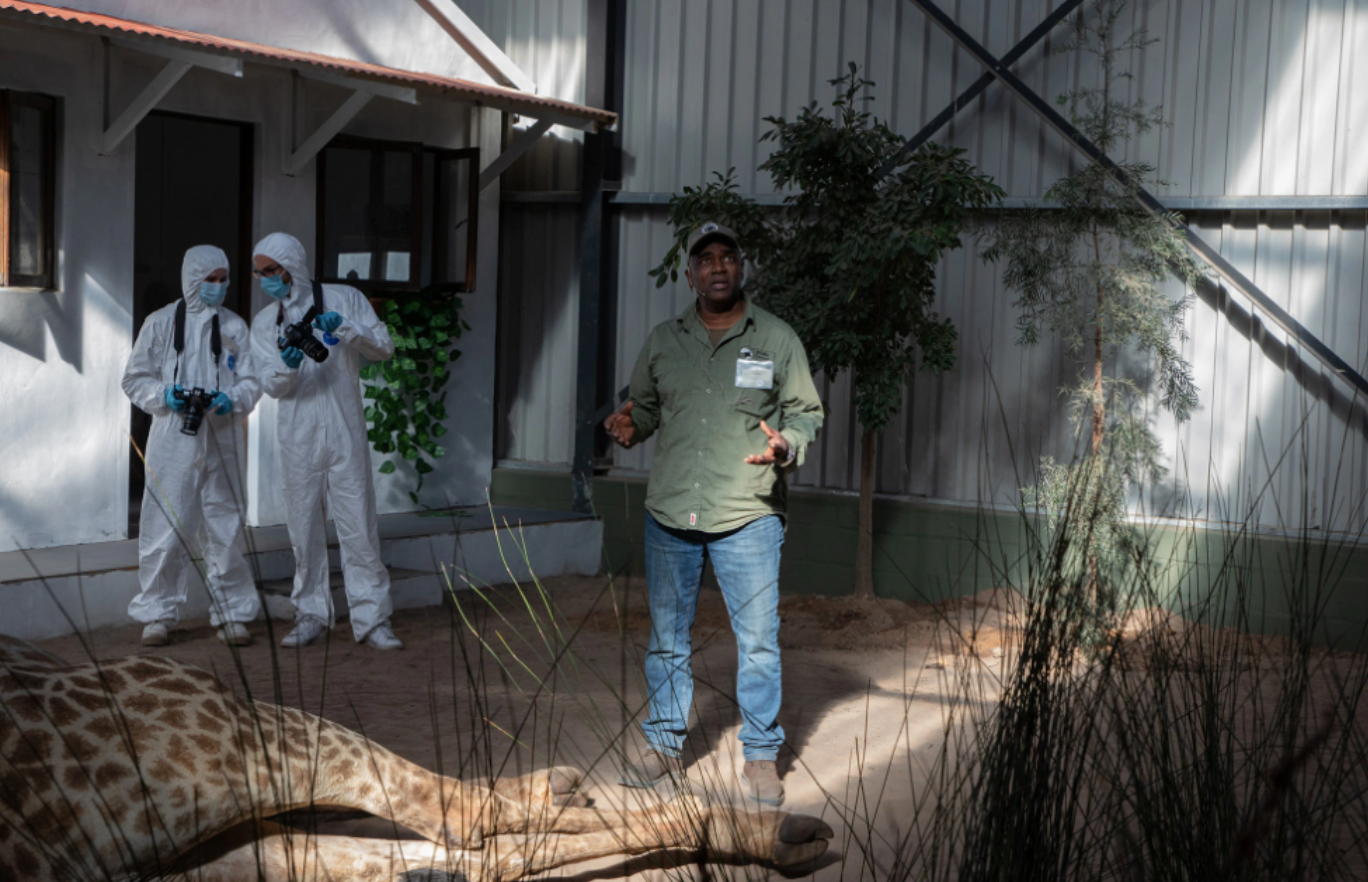Forensics Meets Wildlife Conservation: The Story of The Wildlife Forensic Academy told by Andro Vos
In an interview, we caught up with Andro Vos, a pioneer in the fields of forensics and wildlife preservation, and founder of the Wildlife Forensic Academy (WFA). After having taken his unique ideas to the TEDxBinnenhof in 2014, he now shares his vision for the future of the WFA and the impact he hopes to make in the world of forensics and conservation. Join us as we delve into the mind of this creative and forward-thinking individual. Learn about his journey in building the WFA, his challenges and triumphs, and his plans for the future of the academy.
In the heart of South Africa, where wildlife crime is a serious problem, the need for justice is urgent. The poaching industry, such as the killing of rhinos for their highly-valued horns, not only endangers these magnificent animals but also disrupts the broader ecosystem and is often linked to large-scale organized crime in drugs, weapons, and human trafficking worldwide. However, poaching often happens in remote areas without eyewitnesses, making it difficult to catch the culprits. First responders who unintentionally disturb the crime scene further complicate matters by disrupting crucial traces. This results in poor evidence in court, leaving many poachers unpunished.
That’s where forensic science comes in. The Wildlife Forensic Academy (WFA) is an innovative approach to taking up the fight to give wildlife a voice and bring poachers to justice. It achieves this by offering a hands-on learning experience in its 800 m2 Experience Lab by enacting actual forensic investigations on life-like staged wildlife crime scenes, training individuals in forensic science, and methodical evidence reporting. The driving force behind the WFA is Andro Vos, Programme Director at the Netherland Forensic Institute, one of the world’s leading forensic laboratories.
Andro‘s journey to bring his innovative idea to life started 10 years ago when he was helped by Sonja van Meerkbeek, the managing director of the Sustainable Scale-Up Foundation & Ideas from Europe, to get a stage at TEDx in The Hague. During the event, Andro presented his program on crime scene investigation, which incorporated a diverse range of innovative techniques within the field of forensics, including augmented reality, thermal imaging, and serious gaming. He concluded his talk by expressing his ambition to expand his program to encompass wildlife crime, leaving no perpetrator of such crimes beyond the reach of justice.
His successful talk broadened his audience and impressed the European Commission and the United Nations, who eventually funded Andro's project with six million euros. Unfortunately, when they decided to change their policies the funding was withdrawn. After five years of hard work, Andro was back to square one as an entrepreneur, returning to the private sector and having to rethink his approach. He had to make his ideas more sustainable and profitable to ensure that his new venture, the Wildlife Forensic Academy, could run successfully.
Undaunted, Andro was determined to get his idea off the ground and began his search for investors by participating in more talks and bringing his visions to life by creating visual representations of the academy. “If we build this academy, and we bring forensic in combination with wildlife, it will be mind-blowing”, he had told WFA co-founders Dr Greg Simpson, a qualified veterinarian, and Fred van Alphen, his first key investor, who he had attracted with his energy for the WFA and their shared love for wildlife animals.
Together with his business partners, he finally realized his idea for the WFA, an hour away from Cape Town on a wildlife preserve. Compared to the isolated Kruger Park where most animals live, Cape Town was a popular city among young people, with lots of activities and no malaria to worry about. Thanks to a deal they had made with the preserve owner, they were able to save up money for the academy. With cameras and good lighting around the academy’s facilities, they made the preserve more newsworthy and used the preserve's services in exchange for not having to pay for the land.
To attract students and professors to the academy, the WFA offers study abroad programs, internships, and wildlife forensics courses. Just one week after the announcement of their launch on LinkedIn, students began reaching out to Andro, connecting him with their professors and allowing him to give lectures at universities. The lecture halls were packed with students who wanted to contribute to the world and make a positive impact, not just earn money.
Andro has big plans for the future of the WFA, as he is in contact with the US Africa Command (AFRICOM), an organization that sets the conditions for the success of security cooperation programs with partners in Africa. Together, their goal is to build more academies around the world to address the lack of forensic knowledge and tackle the problem of wildlife crime.
The success of the WFA is a testament to Andro’s design thinking strategy as an entrepreneur and his ability to see and solve problems, realize his goals and make a difference in the world. Andro's story is a reminder to young people and entrepreneurs to step out of their comfort zones, take risks, and always be thinking about the future. With a good story and a solid plan, anything is possible.
If you want to expand your knowledge in this field and in their unique learning concept, visit https://www.wildlifeforensicacademy.com/ to learn more about the WFA training programs and how you can get involved. To keep up to date with more inspiring innovations that make an impact, check out https://ideasfrom.eu/.



